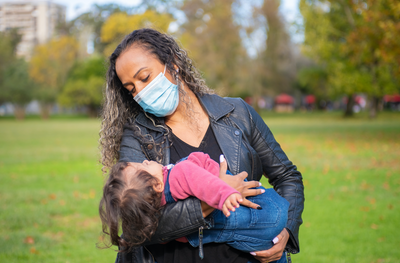Saving and Giving Life: Are Covid-19 Vaccines Safe for Pregnant Women?
By Jordan Berns
In 2019, Covid-19 started in Wuhan, China and swept the globe, devastating millions. Covid-19 poses an extra threat to the immunocompromised, elderly, those with comorbidities, and pregnant women.
Pregnant women are a high risk category for COVID-19, including needing a respirator and an increased risk for death. In November of 2020, the CDC (Centers for Disease Control and Prevention) reported that a higher number of pregnant women passed away from Covid-19 than nonpregnant women, from 1.5 to 1.2 out of 1,000. If contracted, it could also cause premature labor. 12.6% births in hospitalized Covid-19 cases were premature (happening before 37 weeks) according to an August 22, 2020 CDC study. Luckily, Covid-19 doesn’t appear to cause any birth defects when pregnant women are infected. However, there are many cases of mothers passing Covid-19 onto their babies. It appears unlikely that this transmission happens in utero, but rather takes place once the baby is born.
After the outbreak, the scramble for a vaccine began, and two companies lead the way: Pfizer and Moderna. Each company created a mRNA vaccine that comes in the form of two shots with a protection rate of over 90% after the second dose. Despite testing on thousands of people, pregnant women weren’t included in the study. This leads to the question on everyone’s lips: is it safe?
Both the CDC and the American College of Obstetricians and Gynecologists announced pregnant women should weigh the potential outcomes with their doctors if they want the vaccine. The World Health Organization (WHO) stated adverse effects on pregnant women and their unborn children are not probable. According to the CDC and the independent Advisory Committee on Immunization Practices (ACIP), mRNA vaccines are safe for mass use. There aren’t any live viruses in mRNA vaccines, so the vaccine itself cannot give a person Covid-19.
Harvard Health Publishing believes mRNA vaccines to be safe for pregnant women.
One of the biggest questions about mRNA vaccines is if the vaccine would cross the placenta. If it did, would it protect both mother and baby like some vaccines, or would it be harmful? On January 7, 2021, Harvard Health Publishing’s Medical Blog wrote that it’s not feasible for mRNA particles to cross into the placenta because people’s bodies wipe out the mRNA fragments long before they could reach a growing fetus. Harvard believes that the immunity gained by the mother would be shared by her unborn child. They also confirmed that mRNA vaccines do not cause infertility. Additionally, Harvard Health Science believes that vaccinated mothers are able to pass Covid-19 immunity to their babies through breastfeeding. However, most passive immunity (not made by the individual’s own immune system) can fade away as the child grows
While the vaccines haven’t been tested on pregnant women, there have been promising studies on pregnant animals. Moderna conducted an experiment on pregnant rats who didn’t have a reaction to their vaccine. Pfizer also ran a similar and successful study. Pfizer has plans to test their vaccine on pregnant women this year.
Due to the speedy manner in which these vaccines were approved, some of the public is skeptical about taking them. University of California, San Diego published a survey that discovered that 39% of pregnant women don’t want the vaccine. 25% of breastfeeding women would also turn it down. 13% of these women won’t accept the vaccine at any point. Many people believe that there are serious side effects to the vaccines, but they shouldn’t be so concerned. 1-3% of people most commonly had a resulting fever, but it cleared up with Tylenol (acetaminophen), which is safe for pregnant women and breastfeeding mothers.
Have an informational chat with your doctor to see if the benefits outweigh the risks!
The scientific community is leaving the decision to be vaccinated up to women and their healthcare teams. When the United Kingdom began dosing out vaccines in the end of 2020, it didn’t include pregnant women as a priority high risk group. Since then, the UK has established that it could be helpful for a pregnant woman, if she wanted one. The Health Ministry in Israel stated that getting the Covid-19 vaccine is optimal for pregnant women, and most imperative for those with other high risk conditions or who work with the public. The American College of Obstetrics and Gynecology (ACOG) recommend that high risk women who are pregnant should have the option of getting the vaccine. Despite the unknown, plenty of pregnant healthcare workers are getting the vaccine. For example, chief cardiology fellow at UCLA, Dr. Hilary Shapiro, got her Covid-19 vaccine while 30 weeks pregnant. On February 10, 2021 Dr. Fauci told reporters that 20,000 pregnant women have safely gotten the Covid-19 vaccine. He said the effect on pregnant women “is being monitored by the CDC and the FDA."
These are difficult times for all, but for a few, the Covid-19 vaccine spells an end to the fear, loss, and isolation. It’s important to remember that once vaccinated, it’s still possible to spread the virus, so keep remembering to wear a mask and practice social distancing.

